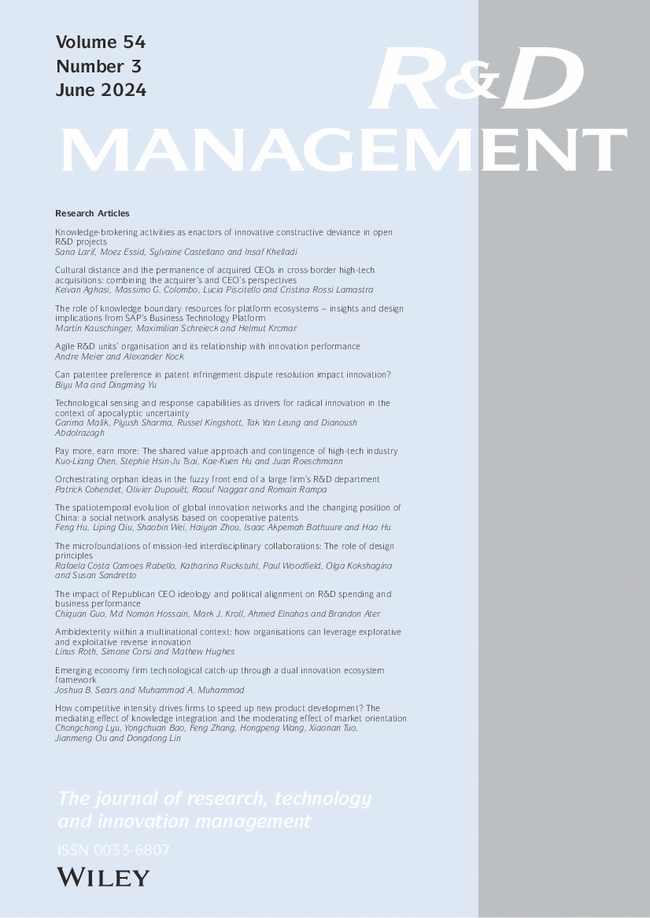The microfoundations of mission-led interdisciplinary collaborations: The role of design principles
IF 5.7
2区 管理学
Q1 BUSINESS
引用次数: 0
Abstract
Mission-oriented (MO) research aims to address social, economic and policy goals through an agreed and evidence-based set of ‘missions’. Vital to achieving a mission are bottom-up and cross-organisational interdisciplinary collaborations. However, these collaborations are often time and resource intensive. Paying attention to microfoundation behaviours can elucidate the individual capabilities required for mission-oriented science. Design-driven approaches have proven useful in supporting the microfoundations of interdisciplinary collaborations. However, we know little about what design principles support MO research. To understand this, we conducted a workshop built on a Concept-Knowledge (C-K) design principles as part of a longitudinal study of a mission-oriented interdisciplinary science innovation programme in New Zealand. Our results indicated that the C-K principles of knowledge mapping, concept exploration and mindful deviation enhanced workshop participants' willingness to creatively experiment across disciplines, provided a shared research directionality and addressed many of the barriers identified in the longitudinal study. We argue that our findings complement and deepen empirically driven microfoundational research by unpacking the specific role of design principles in inducing the behaviours that are essential to advancing large-scale mission-oriented research collaborations.以任务为主导的跨学科合作的微观基础:设计原则的作用
任务导向(MO)研究旨在通过一套商定的、以证据为基础的 "任务 "来实现社会、经济和政策目标。自下而上和跨组织的跨学科合作对于完成使命至关重要。然而,这些合作往往需要大量的时间和资源。关注微观基础行为可以阐明以任务为导向的科学所需的个人能力。事实证明,设计驱动方法有助于支持跨学科合作的微观基础。然而,我们对支持 MO 研究的设计原则知之甚少。为了了解这一点,我们举办了一个以概念-知识(C-K)设计原则为基础的研讨会,作为新西兰以任务为导向的跨学科科学创新计划纵向研究的一部分。我们的研究结果表明,C-K 原则中的知识映射、概念探索和用心偏离增强了研讨会参与者进行跨学科创造性实验的意愿,提供了共同的研究方向,并解决了纵向研究中发现的许多障碍。我们认为,我们的研究结果补充并深化了经验驱动的微观基础研究,揭示了设计原则在诱导行为方面的具体作用,而这些行为对于推进以任务为导向的大规模研究合作至关重要。
本文章由计算机程序翻译,如有差异,请以英文原文为准。
求助全文
约1分钟内获得全文
求助全文
来源期刊

R&D Management
Multiple-
CiteScore
11.30
自引率
9.50%
发文量
0
期刊介绍:
R&D Management journal publishes articles which address the interests of both practising managers and academic researchers in research and development and innovation management. Covering the full range of topics in research, development, design and innovation, and related strategic and human resource issues - from exploratory science to commercial exploitation - articles also examine social, economic and environmental implications.
 求助内容:
求助内容: 应助结果提醒方式:
应助结果提醒方式:


